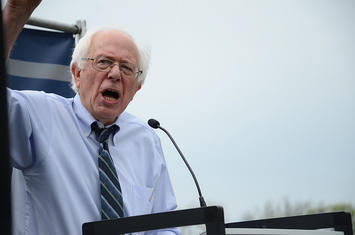
Even before the election of Donald Trump, and more so afterwards, the dysfunction of the GOP has been glaringly obvious. Yet, despite the miserable favorability ratings for both Trump and the Republicans, those of the Democrats, notes Gallup, also have been dropping, and are nearly identical to that of the Republicans.
What gives? Simply put, the Democrats seem to know only what they are against — Trump — but have provided no clear sense of where they want to take the country. The party, and much of the nation, despises Trump, but there does not seem to be any huge pent-up national demand for the Democrats to take over — at least, not yet.
Part of the problem is major chasms underneath the absurd faux solidarity of the “resistance” movement on the left. These have been largely hidden in the increasingly uniformly pro-Democratic media. These differences extend beyond personal fiefdoms or stylistic differences. They reflect deep divides in terms of class and geography, and will not be easy for the party leadership to reconcile.
The gentry vs. populists
The two most remarkable campaigns of 2016 — those of Trump and Bernie Sanders — were driven by different faces of populist resentment. Yet, increasingly, the Democrats’ populist pretensions conflict with their alliance with ascendant “sovereigns of cyberspace,” whose power and wealth have waxed to almost absurd heights. Other parts of their upscale coalition include the media, academia and the upper bureaucracy.
This affluent base can embrace the progressives’ social agenda — meeting the demands of feminists, gays and minority activists. But they are less enthusiastic about the social democratic income redistribution proposed by Bernie Sanders, who is now, by some measurements, the nation’s most popular political figure. This new putative ruling class, notes author Michael Lind, sees its rise, and the decline of the rest, not as a reflection of social inequity, but rather their meritocratic virtue. Only racism, homophobia or misogyny — in other words, the sins of the “deplorables” — matter.
The Washington Post, owned by Jeff Bezos, the world’s third-richest man, reflects this socially liberal, but oligopolistic, worldview. Last spring, Bezos worked assiduously to undermine Sanders’ campaign, then promoted Clinton, and now has become a leading voice in the anti-Trump “resistance.” The gentry wing of the party, which dominates fundraising and media, as the opposition to Sanders reveals, likes its money. The tech community is famously adept at avoiding taxes.
How long can this odd pairing of socialism and oligopoly persist? There are growing sentiments on the left to begin confiscating some of the massive wealth of the tech firms. Bank of America’s Michael Harnett recently warned that continued growth of stock market wealth in a handful of tech stocks “could ultimately lead to populist calls for redistribution of the increasingly concentrated wealth of Silicon Valley.”
Read the entire piece at The Orange County Register.
Joel Kotkin is executive editor of NewGeography.com. He is the Roger Hobbs Distinguished Fellow in Urban Studies at Chapman University and executive director of the Houston-based Center for Opportunity Urbanism. His newest book is The Human City: Urbanism for the rest of us. He is also author of The New Class Conflict, The City: A Global History, and The Next Hundred Million: America in 2050. He lives in Orange County, CA.
Photo by AFGE, via Flickr, using CC License.













"Coming"?
The Democrats have always had more opinions than voters. It is part of our charm, but also what keeps us from winning elections.
Let's not forget that in the last election, Hillary Clinton offered detailed policy plans to deal with everything from healthcare, to income inequality, to global warming, to Wall Street reform.
The problem was not that there were no plans, there were actually plenty of them. The media ignored them in their entirety and focused 100% only on her e-mails.
Trump, in contrast, put out a series of incoherent and contradictory policy plans that were cobbled together from old Reagan speeches, disproven Laffer-curve economics, wishful thinking, and outright lies. The media covered these as if they were bold fresh ideas that only needed a little tweaking to be perfect.
Just because you never read any of the Democrats policy proposals doesn’t mean there weren’t any.